
Request
current list of available Jewelry boxes.
Request
current list of available tea
caddies.
Request
current list of available writing boxes.
writing-boxes
jewelry-boxes
tea caddies
sewing-boxes
contents
Tea and Opium
| |
Inlaid mahogany two compartment tea caddy circa
1790.
Please click on images to enlarge or |
slide show |thumbnail index |
Reference: TC541
Description:
TC541: Inlaid mahogany two compartment tea caddy circa
1790. The top and front have central oval marquetry
medallions depicting conch shells. Inside there are two
compartments with supplementary lids with turned bone pulls. in
the 18th century manner the lids do not have supports but would be
expected to sit on the tea. The orchestration of the inlays is
complex. The top has the central cartouche inlaid in a panel of well
figured flame mahogany. This is framed by inlaid stringing in light
and dark woods and a cross banding of mahogany. The caddy is
edged in boxwood having facings to the bottom and the lid. The caddy
stands on cast gilded brass feet.
Origin: UK Circa:
1790 Materials: Mahogany and other woods on a pine carcass.
Size: It measures 7.6 inches
wide by 4.7 inches deep and it is 5.5 inches high
including feet: 19.2 cm wide by12 cm deep by 14 cm high.
Condition: good
overall, working lock and key, see images.
As each person has different criteria and antiques by their very nature
have wear please enlarge the images and ask for extra information
as needed.
|
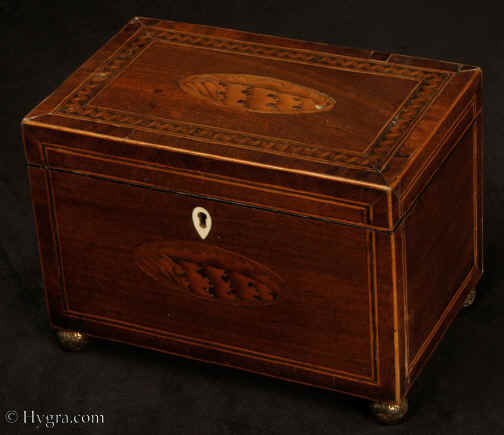
|

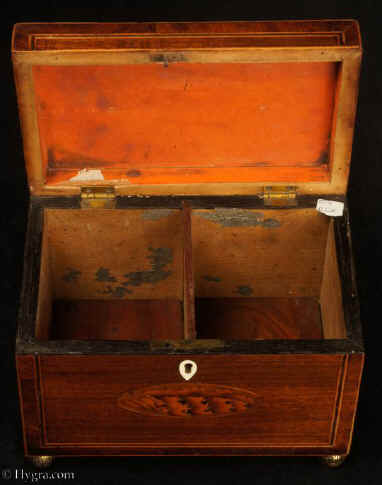
|
The mitered facings are in
contrasting boxwood and a darkened wood. If only one colour of wood
was used for the facings, the line, when the box is closed would look too
wide.
The compartments still retain
some of their original leading.
|
Please click on images to enlarge or |
slide show |thumbnail index | Request
current list of available tea
caddies.
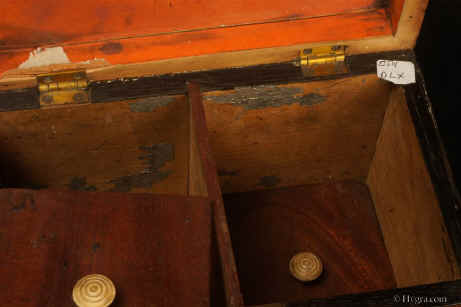
|
The lids would have rested on top of the tea .
|
The oval cartouches inlaid to the top and
the front depict conch shells. The
shell is reminiscent of Britania's then rule of the waves.
The designs
are sharply defined and subtly shaded with the hot sand technique. The
shading is achieved by dipping the separate elements making up the inlay
into hot sand or molten lead.
|
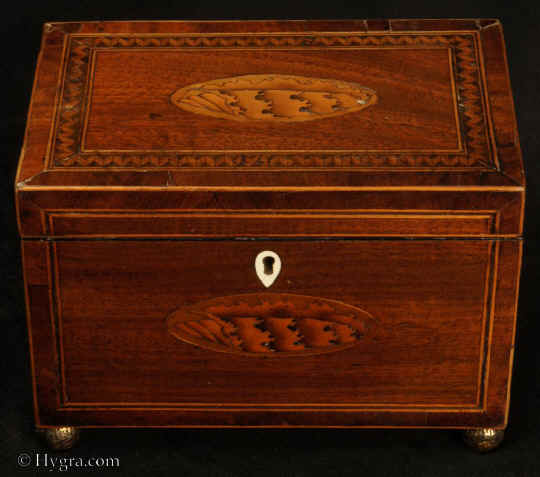
|
Please click on images to enlarge
Corner detail: mitered mahogany cross banding, edged with boxwood,
alternate lines of boxwood and ebony, and a chevron pattern in box and
rosewood (?) to the top.
|
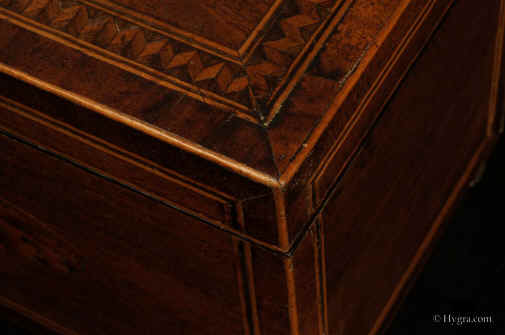
|
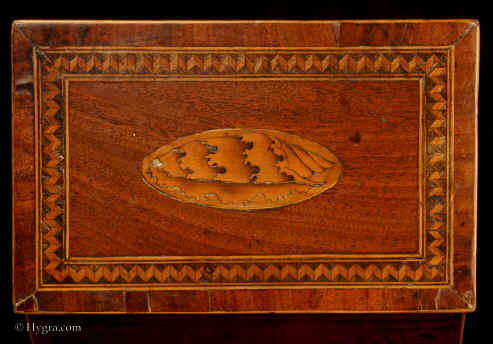
Please click on images to enlarge or |
slide show |thumbnail index | Request
current list of available tea
caddies.
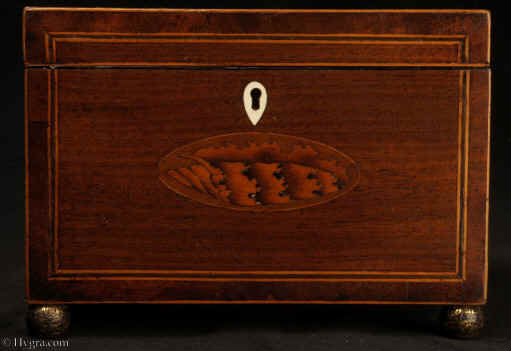
|
The shell was a popular motif in the late 18th century, redolent of
the sea and England's naval supremacy.
|
Please click on images to enlarge or |
slide show |thumbnail index | Request
current list of available tea
caddies.
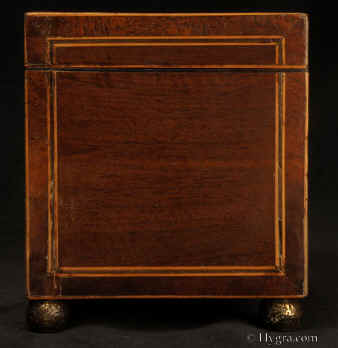
|
A
|
Please click on images to enlarge or |
slide show |thumbnail index | Request
current list of available tea
caddies.
All text and images and linked images are ©
1999-2011 Antigone Clarke and Joseph O'Kelly. If you require any further
information on permitted use, or a licence to republish any material, email us
at copyright@hygra.com
|